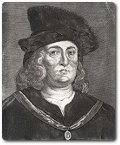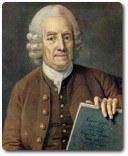Songs of Innocence and Experience Contents
- Social / political context
- Religious / philosophical context
- Literary context
- Textual history
- Songs of Innocence
- Introduction (I)
- The Shepherd
- The Ecchoing Green
- The Lamb
- The little black boy
- The Blossom
- The chimney sweeper (I)
- The little boy lost (I)
- The Little Boy Found
- Laughing song
- A Cradle Song
- The Divine Image
- Holy Thursday (I)
- Night
- Spring
- Nurse's Song (I)
- Infant Joy
- A Dream
- On Another's Sorrow
- Songs of Experience
- Introduction (E)
- Earth's Answer
- The Clod and the Pebble
- Holy Thursday (E)
- The Little Girl Lost
- The Little Girl Found
- The Chimney Sweeper (E)
- Nurse's Song (E)
- The Sick Rose
- The Fly
- The Angel
- The Tyger
- My Pretty Rose-tree
- Ah! Sun-flower
- The Lilly
- The Garden of Love
- The Little Vagabond
- London
- The Human Abstract
- Infant Sorrow
- A Poison Tree
- A Little Boy Lost (E)
- A Little Girl Lost
- To Tirzah
- The Schoolboy
- The Voice of the Ancient Bard
- A Divine Image
Philosophical influences on Blake
New philosophies
 In the later eighteenth century, Dissenters like Blake became very interested in the works of earlier Christians, who had moved away from orthodox, biblical Christianity and combined Christian ideas with beliefs drawn from magic, astrology and alchemy. Works by thinkers like Paracelsus and Jacob Boehme were readily available and highly popular among the Christians among whom Blake moved.
In the later eighteenth century, Dissenters like Blake became very interested in the works of earlier Christians, who had moved away from orthodox, biblical Christianity and combined Christian ideas with beliefs drawn from magic, astrology and alchemy. Works by thinkers like Paracelsus and Jacob Boehme were readily available and highly popular among the Christians among whom Blake moved.
As a result of this interest many became followers of the Swedish thinker Emanuel Swedenborg. A Swedenborgian chapel was established in London and Blake and his wife were members of this church for some time.
The influence of Swedenborg
 Like other Dissenters, Blake was initially an admirer of Swedenborg. Some of the beliefs taught by Swedenborg which can be found in Blake's work include the ideas that:
Like other Dissenters, Blake was initially an admirer of Swedenborg. Some of the beliefs taught by Swedenborg which can be found in Blake's work include the ideas that:
- Heaven and hell are products of a person's state of mind, self-created by every individual during his or her life on earth
- All angels were once human
- Man was so created by God as to be able to speak with spirits and angels while living in the body
- A human being is essentially a spirit clothed with a body
- The spiritual person is the only true reality. What we call ‘nature' and the ‘natural' is actually a distortion of the truth - a lie. People need to be transformed from the ‘false' natural state into their ‘true' spiritual state
- The Christian understanding of God as Father, Son and Holy Spirit, a doctrine known as the Holy Trinity, is wrong. The Trinity exists in one person only, Jesus Christ, just as a trinity of soul, body and spirit exists in each person.
Many of these ideas would be considered as heresy by mainstream Christians. Blake himself rejected Swedenborgianism when the Swedenborgian chapel in London began to organise itself hierarchically and to teach along more traditional lines. Like other Dissenters, Blake rejected all monarchy and hierarchy within society and the Church
Blake and Jacob Boehme
Following his disaffection with Swedenborg, Blake became influenced by the writings of the German, Jacob Boehme. Some of Boehme's key themes, found in Blake's work, include:
- Everything exists, but can be understood only through its opposite
- Evil is a necessary element in goodness, for without evil the will would become inert and progress would be impossible
- Evil is a result of the striving of single elements of Deity to become the whole
- God himself contains conflicting elements and antithetical principles within his nature.
As with the theories of Swedenborg, these ideas do not tally with the teaching of the Bible about such issues.
